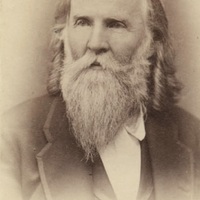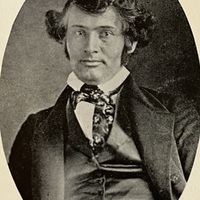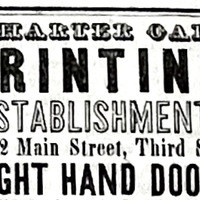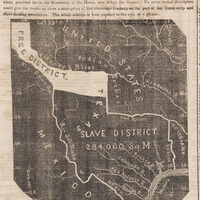Women on the War-Field
WOMEN ON THE WAR-FIELD.
The Mexicans are a rude and half-savage people, and one would think this pretension was deemed enough to justify the slaughter of her inhabitants. That we may hew down her sons and blow her daughters into shreds, to make room for our heroic race, whose boast is to have sprung from that highly refined stock, the Saxon skull-splitters. There is no other true race of the saints, and of necessity the promise that ‘the saints shall inherit the earth’ belongs to us.
The true measure of a nation’s advance is found in the character of its women, and though we would not make a general contrast between the senoritas of Mexico, and the women of New England, we cannot help noticing the marked difference displayed by some of each class in their relation to this thievish and murderous war.
Yankee women in the old Yankee town of Newburyport — let such be few — made public demonstrations of their approval of murder and rapine, in the presentation of Col. Cushing, of a ring which he bought for himself; and in other ridiculous ceremonies intended to cheer on their townsman to his blood-hound’s work. So much for a portion of the women of New England. Now mark a picture on the other side. We all remember the fate of the ‘ministering angel’ at Monterey, who feeding the faint soldier, and bringing water for his burning lips, was shivered by a gunshot in her work of mercy. Such danger did not deter her fellow countrywomen from following in the awful train of war, to relieve the wounded sufferers, to pour one drop of mercy and love, to quench for a little space the surging hell of war. We hear of two thousand women following their friends and brothers to the terrible storm of death at Buena Vista. After those hireling murderers, whom our recreant Yankee women made fools of themselves to cheer on, had hailed their iron shower of death and wounds into the crowded ranks of men, these ministering angels came to bind the fallen brother’s wounds, and give cool water to the parched lips of the dying.
God bless them, every one. They have human hearts, they are true women, willing to face death, and the worse agony of witnessing the fall of their loved ones, smote through by ball and bayonet, if they might shed a little joy late the failing heart, a little peace on the throbbing brain, or bled in the fast-flowing vigor of some fallen warrior, pale and bloody on the field. Think of it, women that urged the blood-hounds on, and wrought banners to wave over such a red Maelstrom of hell, whether is womanlier, your heartless cheering for idle vanity, or their perilous human work of assuaging the pangs of Death for love’s sakes and the instincts of blessed mercy? They were women, but what are ye?
What private pangs, what social tragedies, must that sense furnish. Two thousand women, on the field of indiscriminate slaughter, that was strewn with three thousand men murdered and wounded, friend and foe, — how many a ghastly face would look up, familiar yet how strange, of friend, and son, and brother. And with what heart-fluttering each noble wife or sister, or dear love, would read the features of the dying there, and seek their own doom in the stony eyes of the slain.
How horrible, to think that nations baptized into the name of Christ should furnish such a scene as this. The blessed law of love, enforced by the life and death and divine authority of the World’s Redeemer, for two thousand years, and yet only in woman’s heart is any home for mercy and great human love.
The meek disciples of that holy name are yet the same mad cut-throats that they were in heathendom. The advance of Christ’s Kingdom beyond barbarism, is shown here chiefly in the art of murder, in engines for the greater slaughter of mankind.
But thank God, for humanity’s sake, that woman’s heart can keep alive the blessed flow of pity and generous philanthropy, even while manhood has gone frenzied with the demon cry of war. Thanks that the great instincts of spontaneous love, alike in all climes and all ages, keep yet their throne in woman’s glorious nature, while even the Rabbis of Religion have debased that revered name to murder’s awful service.
God will not see nature hurled from its sphere by our convulsions, and when war-chaplains and Christ-worshipping assassins, would well nigh teach us utter misanthropy. He saves our hearts from such sad atheism, by revelations of an unquenched fire of love and mercy, kept in secret till this awful hour should fan it into flame. If the wild battle yell of Buena Vista may make one doubt God’s presence in the world — as well it might — those wives and mothers there, doing their blessed work, should re-seat faith upon the throne, and teach us how unquenchably His spirit breathes in His last work, when human suffering calls it into action.
- Title
- Women on the War-Field
- Rights
- Public Domain
- Type
- Newspaper Editorial
- Creator
- Not yet sure which brother wrote these, but I have some evidence that is was George (he includes it in his scrapbook of his writings)
-
 George Shepard Burleigh
George Shepard Burleigh
-
 William Henry Burleigh
William Henry Burleigh
- Date
- 1847-04-22
- Description
- Editorial extolling the mercy-bearing Mexican women who trod the battle fields of the Mexican-American war, and condemning American imperialism, American women who support the war, and male supremacy that cannot understand true Christianity.
- Format
- Editorial
- Language
- English
- Item sets
- Burleigh Resources ALL
- Media
-
 Women on the War-Field
Women on the War-Field


